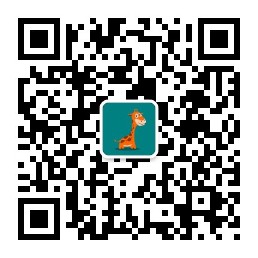第1272期:若得长圆如此夜
中秋节正式的英文名称是 the Mid-Autumn Festival,也叫 Moon Festival. 我觉得月亮节听起来更美一些。也有人称之为Mooncake Festival,呃,这个比较不好消化。
在整个东亚儒家文化圈,中秋节的影响和地位仅次于春节。过去的江湖艺人拜师后讲究“三节两寿”要去看望师父,指的就是五月节、八月节、春节、师父和师娘的生日。直到今天,中国北方(京津等地)很多老年人还把今天叫做八月节。
中秋节在韩国叫做“秋夕” (Chuseok – 추석),意思是Autumn Eve;在日本叫做“月见”(Tsukimi –月見),字面意思是Moon-Viewing);更正式的应该写作 Otsukimi (お月見),表示正式和尊重,也叫 Jugoya (十五夜)。
跟中国古代风俗类似,日本庆祝“月見”也有一套节日食品,称为Tsukimi dishes (月見料理),一般包括Tsukimi dango(月见团子,rice dumplings)、edamame(青豆)、taro(芋艿)、chestnut(栗子),还有sake(清酒)。
古人中秋节把酒言欢,合家团聚,对诗赏月。我小时候在老家跟爷爷一起过过几次中秋节,大人小孩都喜欢猜谜语,我老家话叫“破闷儿”。四十多年后的今天我还清晰记得当年爷爷给我出的几条谜语。
现在人们的物质丰富了,精神贫瘠了,除了吃喝,发社交媒体照片,把没人吃的月饼送来送去,好生生一个原本突出亲情和团聚的节日搞得一点味道都没了。
不过,不论怎样,还是祝你节日里开心。如果可以,陪爸妈好好吃顿饭,说说话。能不能看到月亮不重要,重要的是你心中有一轮圆满的月亮。
附:
中秋节有很多传说,下面这段简单的小英文你可以背下来,或者熟读,达到脱口而出的地步最好。在需要的时候你张嘴就能向歪果仁介绍中秋节了。(注:下面只是众多中秋节来历版本中的一个)
In the ancient past, there was a hero named Hou Yi who was excellent at archery. His wife was Chang’e.
One year, the ten
suns rose in the sky together, causing great disaster to the people. Yi
shot down nine of the suns and left only one to provide light.
An
immortal admired Yi and sent him the elixir of immortality. Yi did not
want to leave Chang’e and be immortal without her, so he let Chang’e
keep the elixir.
However, Peng Meng, one of his apprentices, knew this
secret. So, on the fifteenth of August in the Chinese lunisolar
calendar, when Yi went hunting, Peng Meng broke into Yi’s house and
forced Chang’e to give the elixir to him.
Chang’e refused to do so.
Instead, she swallowed it and flew into the sky. Since she loved her
husband and hoped to live nearby, she chose the moon for her residence.
When Yi came back and learned what had happened, he felt so sad that he
displayed the fruits and cakes Chang’e liked in the yard and gave
sacrifices to his wife. People soon learned about these activities, and
since they also were sympathetic to Chang’e they participated in these
sacrifices with Yi. — Handbook of Chinese Mythology, by Lihui Yang
祝大家中秋快乐,阖家团圆。




